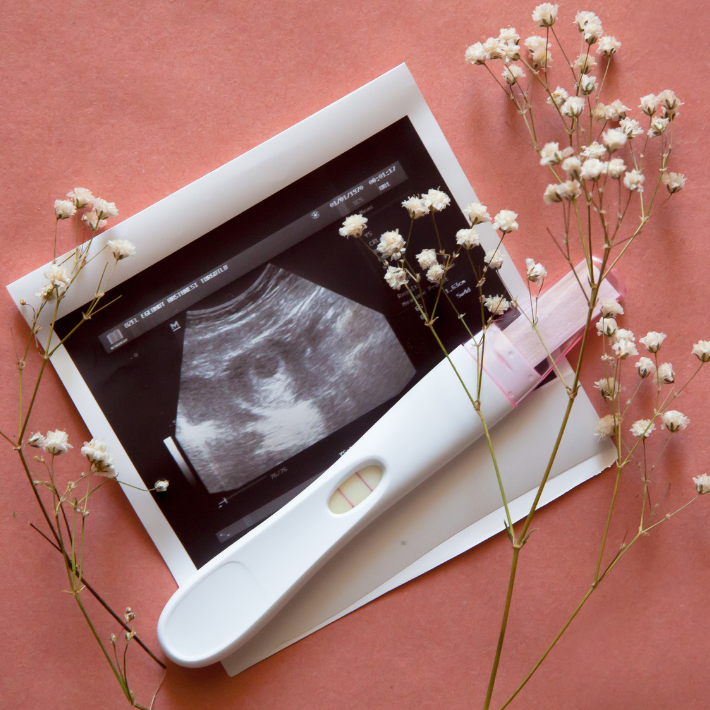LUMC investigates treatment with prednisolone for recurrent pregnancy loss
&width=710&height=710)
“A miscarriage is the sudden loss of an early pregnancy. The chance of this happening is 15 to 20 percent. Miscarriages can have several causes, such as a malfunctioning thyroid, an abnormal shape of the uterus or antiphospholipid syndrome. In almost 50% of cases, specialists find no underlying cause. They then refer to it as an unexplained miscarriage,” says physician-researcher Yentl Béquet.
Normally, the woman's immune system leaves the fetus, half of which is foreign to the body anyway, alone. “There are indications that some of the unexplained miscarriages are due to the immune system attacking the fetus as a foreign object. What exactly is going wrong in that process, we don't know yet. However, it has been proven that prednisolone can affect certain immune cells. It is used in organ transplants to prevent the recipient's body from rejecting the new organ,” says gynecologist Lisa Lashley.
No proven treatment yet
The LUMC researchers believe that prednisolone (similar to prednisone) may be able to prevent rejection in pregnancies as well. Lashley: “There have been foreign studies that suggest this, but they were too small and not randomized (randomized) in design. Therefore, at this time, prednisolone is not considered a proven treatment. In LUMC and the rest of the Netherlands it is therefore not given to increase the chance of a live birth. In countries such as Belgium and Germany, however, this drug is already prescribed for this indication.”
Lashley and her colleagues received many questions from women in recent years about the use of prednisolone. To prove (or disprove) that prednisolone can increase the chance of a live birth in women with recurrent miscarriages, she decided to set up the PREMI study. Eleven other Dutch clinics are participating in the study.
Prednisolone or placebo
The study targets women who have had recurrent, unexplained miscarriages and are up to seven weeks pregnant. To test whether the treatment truly works, one half of the women get the prednisolone and the other half get a dummy pill (placebo). The computer determines who gets what. The participants do not know what they are taking, nor do the researchers. This way of doing research is called a blinded experiment to prevent conscious or unconcious bias in the execution and results of the trial.
The women who participate do not have to visit LUMC. Béquet: “In the meantime, we make four phone calls and send the participants digital surveys. In addition, they can have standard check-ups done at their own obstetrician or hospital. Everyone participates in the study for 52 weeks. Even women who go through a miscarriage. Among other things, we ask them how they are doing and about the impact of the miscarriage.”
Medicine is safe, occasionally side effects
The researchers do not want to give women any false hope. “We are very open in our information. We explain the importance of the study and that there is a 50% chance that a woman will not receive prednisolone, but the placebo. We also explain that the drug is safe and that it is already used by pregnant women because of other conditions. In a smaller study in England, in which prednisolone was also given to women who had unexplained recurrent miscarriages, side effects were reported. But these were of such mild severity that no one stopped taking it,” says Béquet.
Lashley adds: “Prednisolone is known to be quite severe medication. There are all kinds of conditions where people take it chronically, such as asthma and Crohn's disease. They can get nasty side effects, including weight gain. Not surprisingly, some women are reluctant at first. The big difference is that we provide the prednisolone in a shorter regimen and in a much lower dose. We also expect all side effects to disappear after stopping the medication.”
Difference of at least 12 percent
According to the researchers, at least a 12 percent difference in children born alive between the two groups is needed before they can state that the drug is effective for this purpose. In doing so, the drug must not cause serious side effects for mother or baby. In addition, the researchers are looking at the effect of prednisolone on:
- Immune cells in the uterus.
- Duration of pregnancy and birth weight of the child.
- Survival of the infant after 28 days.
- Possible side effects in the mother, such as gastrointestinal symptoms and mood swings.
- Pregnancy complications such as preeclampsia and gestational diabetes.
Should prednisolone prove itself as a treatment for unexplained recurrent miscarriages, the ultimate goal is to include it in Dutch guidelines as standard treatment.
The PREMI study is still looking for participants. Those interested should contact premi@lumc.nl. For more information, visit: zorgevaluatienederland.nl/premi.
LUMC is organizing a pregnancy loss day on October 26. You can register for this via centrumjongezwangerschap.nl.